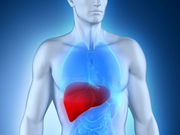All unvaccinated adults at risk for infection should be vaccinated; screening recommended for at-risk
TUESDAY, Nov. 21, 2017 (HealthDay News) — Best practice advice statements from the American College of Physicians and the U.S. Centers for Disease Control and Prevention, published online Nov. 21 in the Annals of Internal Medicine, encourage hepatitis B virus (HBV) screening in high-risk populations, vaccination of all unvaccinated at-risk adults, and linkage to care for HBV-positive patients.
To develop the best practice advice statements, Winston E. Abara, M.D., Ph.D., from the CDC in Atlanta, and colleagues conducted a narrative literature review of clinical guidelines, systematic reviews, randomized trials, and intervention studies on HBV vaccination, screening, and linkage to care.
The authors note that all unvaccinated adults at risk for infection due to sexual, percutaneous, or mucosal exposure; health care and public safety workers at risk for blood exposure; adults with chronic liver disease, end-stage renal disease, or HIV infection; travelers to HBV-endemic regions; and adults seeking protection from HBV infection should be vaccinated. High-risk persons, including persons born in countries with 2 percent or higher HBV prevalence, men who have sex with men, injection drug users, HIV-positive individuals, and household and sexual contacts of HBV-infected persons, should undergo screening for HBV. All patients identified with HBV (hepatitis B surface antigen-positive) should be provided with or referred to post-test counseling and hepatitis B-directed care.
“The best practice advice statements in this article amplify and complement existing clinical guidelines by reiterating the importance of hepatitis B vaccination and screening in at-risk persons and linking infected persons to care,” the authors write.
Several authors disclosed financial ties to the pharmaceutical industry.
Copyright © 2017 HealthDay. All rights reserved.








